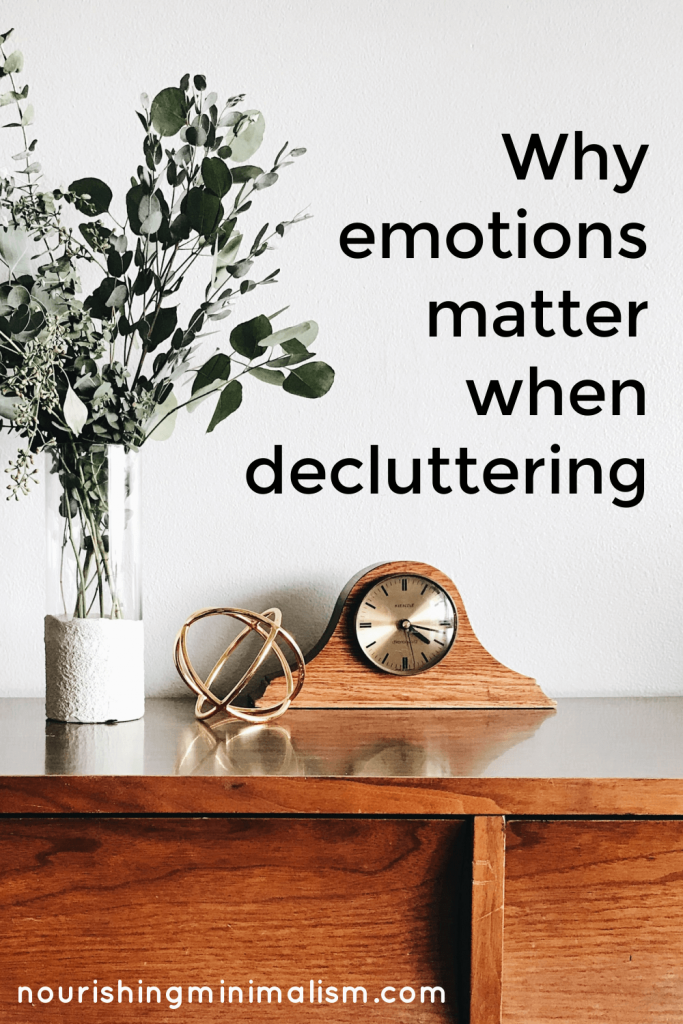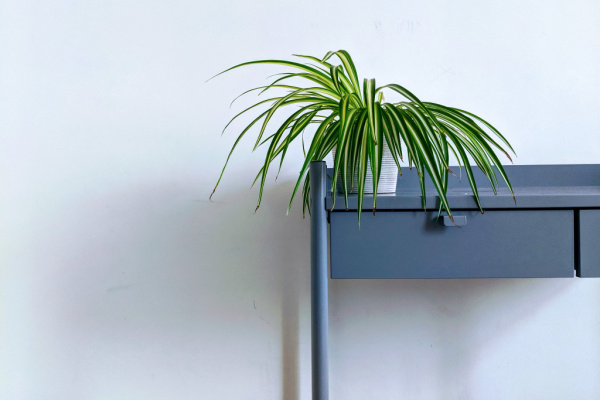Why what you keep needs to support your emotional well-being
Our things usually have emotional connections to them.
Not all of our things, some of our things are completely utilitarian and it doesn’t matter whether we keep them or not, it’s an easy decision to make if we don’t need them.
But as soon as we get rid of that surface layer of clutter, we come to things that have emotional ties.
Before we get started, I want to give you an emotional trigger warning because I am going to talk a little bit about childhood abuse, and in order to keep people’s privacy, I have changed some of the details, but the core of the story is true.
And what we can learn from it is very valuable.
Emotionally charged items
A few years ago, I was working with Eileen and her home was large and beautiful, she had a collection of antiques, and many of them had family stories to go with them.
They’d come from all different family members. People knew that she collected them and they would pass them on to her as the keeper of all the antique things.
When her grandfather died, the family, wanted all his antiques to stay in the family. So since she had a large house and lots of places to display them, they ended up at her house.
But after we worked together for a few weeks and she began to tell me stories about her things, I discovered that there was childhood abuse connected to her grandfather.
And the family had known about it, but back in those days, those things weren’t addressed, it was completely swept under the rug and everyone was supposed to pretend as if it didn’t happen and the family was “perfect, happy and fine.”
So being the family keeper of all antique things, everyone had expected her to keep these items.
They brought them to her house and expected her to display them.
Now, it is really hard to tell your parents, your siblings and anybody else involved that you don’t want family pieces, so she took them, and she put them up in her home.
But what kind of emotional impact do you think that had on her to be surrounded by items from the person that had caused so much pain?
Eileen was never willing to let the items go and face the response from her family members and she passed away a few years ago.
Now, this is an extreme example, and we don’t all have the same type of situations where we have items from people that hurt us so much.
But this is part of the minimalist journey of pairing down our things, of being particular about keeping only the items in our home that have good feelings, good memories, and good emotions.
Even a slight resentment can have a negative impact on us.
If we have any items in our home that someone said, “These need to stay in the family,” but we know we don’t want them in our home, we’re going to have a negative feeling towards that relative.
And it might not be bad, it might just be such subtle resentment…
“I have to keep these dishes. I have to keep this furniture.”
And if you feel like you need someone’s permission to let go of these items that you do not want, consider this me giving you permission to let them go. ❤️
Family items used to be so different.
If you think back just 200 years ago, people didn’t have very much, and if you had a set of China, it was treasured and it was passed down.
It was likely one of the very few beautiful items that people would treasure from their families.
Now, we’re surrounded by stuff, there’s so much stuff everywhere, and we can be picky about the things that we use.
We can have preferences.
200 years ago, there weren’t a lot of options and usually, Grandma’s China was the most beautiful thing we’ve ever seen.
These days, it’s not.
And there is simply so much stuff.
We have to be very picky about which items we keep, which items we use, they need to serve us.
And if we find that we are serving them by taking care of them all the time, and they’re not serving us in return, then it’s a good thing to question why we allow them in our homes, especially if we have a collection or if we just have an abundance of everything.
Most of us do have pieces that we enjoy; either they were gifts or they were inherited, and they bring great joy to us so we should highlight them.
We should give them a place of honor in our home.
Several years ago, I participated in an art show.
I cataloged all my paintings and I took them down to a gallery. I started hanging them the way I thought they should go, there was a lot of them, and the owner of the gallery stopped me and she said,
“No, no, no, you’ll have to give more space in between or the walls are too cluttered and the people walking around don’t know where to rest their eyes so they will just move past it.”
That’s why there are art curators!
Because they understand the value of simplicity.
If you have shelves that are covered with all sorts of knickknacks, there are too many, it’s too cluttered, and you can’t see the individual pieces.
It’s not saying that we don’t like all of the things because most of us do, we really do like the stuff that we collected.
So don’t think of it as discarding things that we once loved, instead, think of it as being able to highlight the ones that you treasure the most.

If you want to delve a little bit deeper into the way you think about your stuff and being able to prioritize it and embrace a minimalist mindset, I created a journaling course just for that. It’s 21 days, different journaling prompts every day to help you think through what you want to be a priority in your life.
And when you figure out that end goal of what you want your life to look like, then it’s much easier to strip away those things that are not adding value.
Click here to learn more about the Minimalist Mindset Journaling Course


Yeah, because of abuse, I can’t have any of my dad’s things. I did keep a mobility scooter he had. But it wasn’t the one he used, it was one he was planning to sell, so I don’t have a problem with it. I really needed one, and there was a free one! I took it as God’s provision!